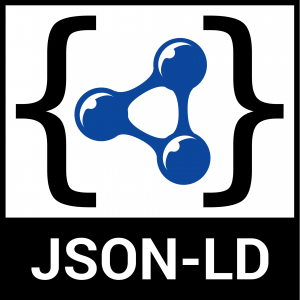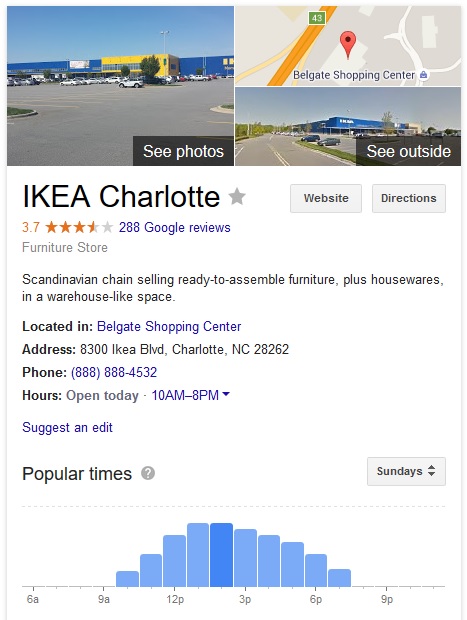 2016 is here and it’s time to end the majority confusion for Schema.
2016 is here and it’s time to end the majority confusion for Schema.
What is Schema Markup?
Schema Markup is code that can be added to your website which supplies search engines with specific data about your content. As of February 2016, the there are 642 types of Schema but the common types of schema markup is markup for creative works, video, events, medical types, organizations, people, places (such as local businesses), products, reviews, and actions.
A brief history of problems with Schema
- Bad information: The Internet is flooded with misinformation, myths, obsolete information, and good information which is way too complicated for any normal person or business owner to follow.
- Too many names: What is it called again? Schema? Schema markup? Rich snippets? Structured markup? Structured data? Semantic markup? People mix these definitions up.
- Implementation language: MicroData HTML code, RFDa, or as JSON-LD in a script. Some search engines support one and not the other type, or can only pull some data from JSON-LD and other data only from MicroData.
- Many uses: Some people use markup to tell search engines who wrote an article, what a corporate phone number is, or to review an apple pie recipe. Others use it for place actions such as ordering food or reserving a table at a restaurant.
- Lackluster vocabulary for Local Business Types: For local businesses, structured data has always been a gigantic pain; just look at Schema.org’s business types. The page is practically impossible to navigate and nobody can ever find their business type. Local businesses are left struggling. Who has 18 hours to figure this out? For more on this see: Finding the Correct Schema Local Business Type for JSON-LD.
- Implementation and cosmetics: If you used MicroData tags in your HTML previously, getting the actual text to display on the page was about as much fun as being waterboarded. In other words, your structured data was visible on your website and getting it to mesh with your design was practically impossible.Then for content management systems such as WordPress there are schema plugins but most cover one type of Schema and not the next.
- Spam: No, the Internet can not have nice things. Crummy SEO companies gotta come along and goof everything up. Fake reviews, spammy tactics like artificially inflating the number of reviews, etc happen every day…
What is JSON-LD?
JSON-LD is short for JavaScript Object Notation – Linked Data. JSON-LD is a script you drop into your HTML file which contains all of the info you need to supply to search engines. It is invisible to the human visiting your website and you can just plop it in anywhere you want. It is far superior to MicroData and Google now recommends that you use this type of script fro Schema markup.
Properly implementing Schema via JSON-LD for a Local Business
January 12, 2016 Google updated their page on providing local business information via structured data. It reads:
Providing business information to Google is straightforward: simply define a schema.org LocalBusiness item for each business location, inclusive of:
- Disambiguation properties such as the business name, address, and telephone.
- Service-related properties such as operating hours and menu URLs.
We recommend using JSON-LD as the data format.
The schema.org markup should be embedded on your official web site.
Test and validate your markup with the structured data testing tool.
Business owners should always provide search engines with as much data as possible. For Schema markup this breaks down into required, recommended, and optional data to be supplied via JSON-LD.
- Required types of “properties” are: URL, name and address.
- Recommended types are: Geographic coordinates, latitude, longitude, phone number and business hours.
- Recommended by Len: Site name, business reviews, logo, business description, “sameAs” for social
- Optional: There are many types of optional items. I recommend using as many as possible. This includes events, menus, corporate contacts and more.
Don’t forget: Make sure ALL of your Schema markup matches the information already visually displayed on the page to human readers 100%.
JSON-LD heats up in 2016
On February 4, 2016, a Google rep announced the launch of support for JSON-LD for Reviews and Products structured data markup.
This is just 2 weeks after updating their other page which says “We recommend using JSON-LD as the data format.”
What is a Rich Snippet?
A rich snippet is structured data which is displayed to people using search engines.
Does JSON-LD Markup affect a business’ Knowledge Panel?
According to Google, as of February 2016, they are testing this and it will likely soon be open to the public. At this point I’m not sure if data entered into Google My Business will supersede JSON-LD provided data or vice versa.
Related resources:
- Finding the Correct Schema Local Business Type for JSON-LD
- Schema.org
- Google – Structured Data and Local Business Information
- Google – Promote your content with Structured Data
- Google – Structured Data Report
- Google – Structured Data Testing Tool
- Google – Structured Data Markup Helper
- WordPress plugin: WP SEO Structured Data Schema
- WordPress plugin: Schema App Structured Data
- Google “Pure Spam” Penalty Deindexes Sites March 6 2024 - March 12, 2024
- What Happened to ChicagoNow.com? - August 30, 2022
- The December 2021 Google Local Pack Algorithm Update - December 17, 2021






Hi there,
Your article about json-ld markup for local business made my day.
I was reading that json-ld only apply for reviews/ratings and that if we want to markup business information we should use microdata-you know the HTML way.
Now according to your article the json-ld way became fully adopted by google and we should use it without fear for every situation.
~Nick from Greece
Thanks Nick!
The review aspect of this is brand new. I saw something about it on TheSEMPost the other day. I have a few experiments for this running as well on aggregate ratings using JSON-LD.
Google’s page, Enabling Rich Snippets for Reviews and Ratings, explains more on review markup as well. They are actually still recommending microdata, however, in this case it appears that their search engine is ahead of the documentation. I’ll have a post on this in the near future. 🙂